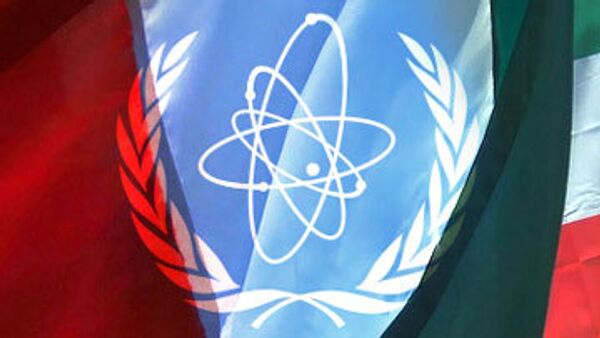Russia and China still call for a diplomatic solution of Iran's nuclear issue, which has been in the center of international attention due to Islamic republic's continuing nuclear developments.
The statements by Russian and Chinese envoys to the UN came after a meeting of the Iran Six at the level of permanent representatives to the international body, which took place in New York on Thursday.
"I do not think any of us want to impose sanctions. What we want to have is a diplomatic solution, and all sorts of constructive proposals have been made to Iran. So, if Iran wants to negotiate, they should start negotiating," Russia's envoy Vitaly Churkin said.
Russian President Dmitry Medvedev said on Tuesday during a news conference that followed the signing of a new strategic arms reduction treaty with the U.S. in Prague that Iran's intransigence over its nuclear program may cause the UN Security Council to revise its approach.
"Unfortunately, Tehran is not responding to a number of constructive compromise proposals and we cannot close our eyes to this," said Medvedev, who discussed the issue with U.S. President Barack Obama before the ceremony in the Czech capital.
The Russian president reiterated, though, that sanctions against Iran must be "intelligent" and Moscow would aim both at convincing Tehran to act in accordance with international law and at protecting Russia's national interests.
China's representative Li Baodong said after the meeting in New York that China supported the "dual track approach" to the issue.
"The dual track approach is actually focused on diplomacy," he said.
The "dual track" stipulates that Tehran would face pressure if it rejects to cooperate with the international mediators and help if it agrees on a uranium swap plan proposed by the International Atomic Energy Agency.
Iran's nuclear program has long been an issue of international concern. The country's recent move to begin enriching uranium to 20% purity has sparked a new wave of criticism from Western powers, which suspect Iran of attempting to build nuclear weapons under the guise of peaceful nuclear activities. Iran has rejected the allegations, saying it needs enriched uranium for civilian power generation.
Under the plan, drawn up by the IAEA last October, Iran was to ship out its low-enriched uranium to Russia, where it would be enriched and then sent to France to be made into fuel rods and returned to the Islamic Republic for use in its research reactor in Tehran.
But the proposal was then rejected by Tehran, which suggested it could consider a simultaneous swap of its low-enriched uranium for 20%-enriched uranium, but that the exchange would have to take place on its own territory.
Obama reaffirmed on Thursday that the United States would not tolerate any actions by Iran that could spark an arms race in the Middle East.
China, Russia, and the United States, along with Britain, France, and Germany are the six mediators on Iran's nuclear program.
NEW YORK, April 9 (RIA Novosti)


